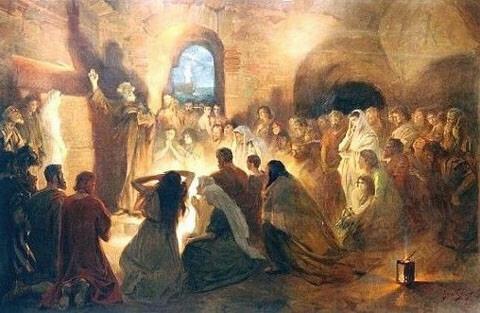
Carrying out God's plans

“For this is what the Lord has commanded us:
‘I have made you a light for the Gentiles,
that you may bring salvation to the ends of the earth’” (Acts 13:47)
Once in a while, someone reflecting on Jesus’ words “go and make disciples of all nations” (Matthew 28:19-20) has concluded that this command applies only to those who were face-to-face with Jesus at the time He gave it. That, for instance, is what some leaders of the Reformation believed and taught.
Early Christian writings indicate several of the 12 apostles did leave their homeland to proclaim the Good News. We have reports, for example, of Andrew evangelizing in Greece, while James the Younger may have gone to Egypt. Jude (Thaddeus) may have wound up in Persia and Matthew in Ethiopia. “Doubting” Thomas reportedly went to India to preach the Gospel and plant churches.
Was such first century missionary activity all that Jesus meant in His Great Commission? It was not, if Acts 13:47 is to be taken seriously. To be sure, Paul’s recounting of the divine command is a quote from Isaiah 42:6 rather than a repetition of Matthew 28:19-20. However, Acts 13:47 contains the “ends of the earth” phrase Jesus used in Acts 1:8 and it certainly communicates the sense of the “all people groups” idea in Matthew 28:19-20.
As to the context in which Paul spoke the words of Acts 13:47, he was preaching in Psidian Antioch on his first missionary journey. He was speaking that day to a predominantly Gentile audience. None of the original apostles were present.
Paul makes a point of saying to his audience that “the Lord has commanded us.” When he says “us,” Paul is including the new Gentile believers listening to him that day. That would be in line with his statement on another occasion that all who belong to Christ are children of Abraham (Galatians 3:7, 29). Clearly, Paul felt that the command to take the Good News to the ends of the earth was directed to the whole people of God.
Eighty years ago Greek scholar A. T. Robertson wrote a now-classic verse-by-verse look at the New Testament. That six-volume work was titled Word Pictures in the New Testament. In his comments on Acts 13:47, Robertson reminded his readers that centuries had passed since Luke penned that verse. He further commented that if we calculate from the time of Isaiah's original writing, even more centuries have gone by. Robertson then noted that, at the time he was writing, more than half of the world’s population still had not heard the Gospel. “God’s people,” Robertson concluded sadly, “are slow in carrying out God’s plans for salvation.”
Sad, but true. Eighty years later, it’s still true. We have clear marching orders, and we’re still dilly-dallying.
